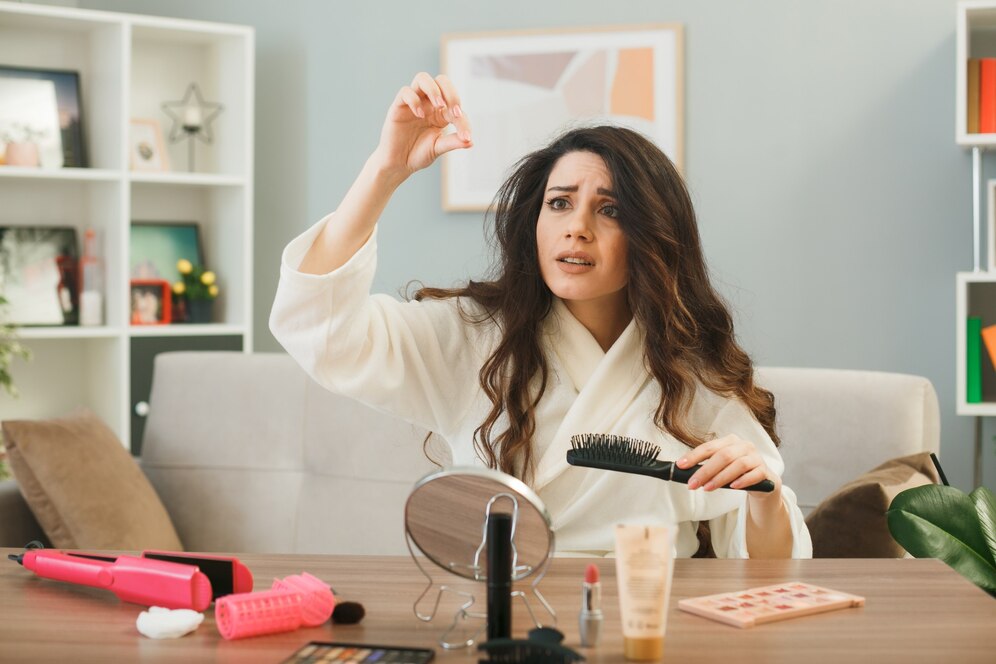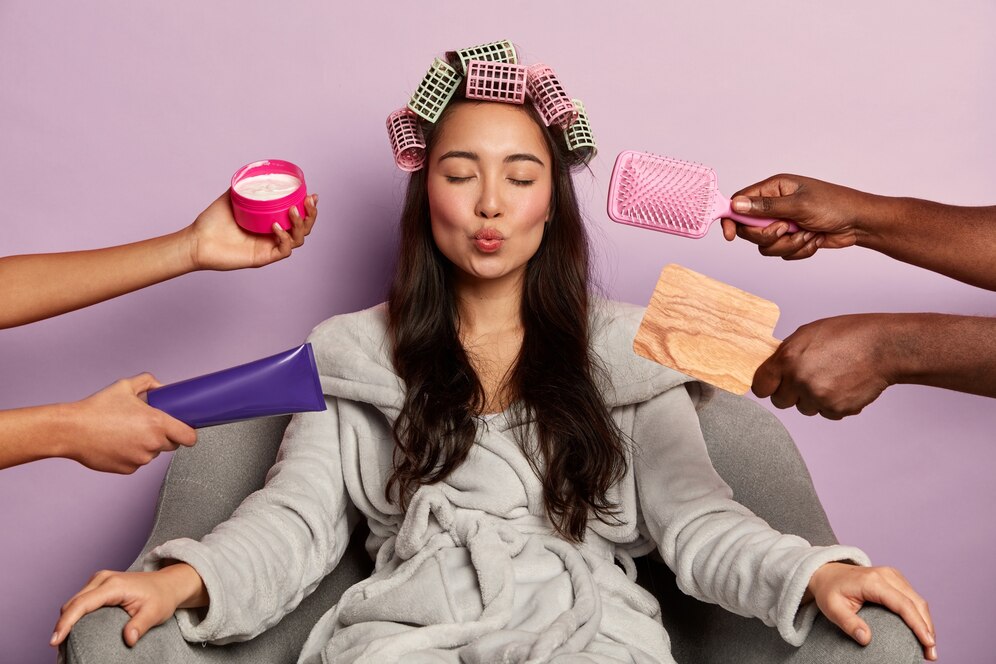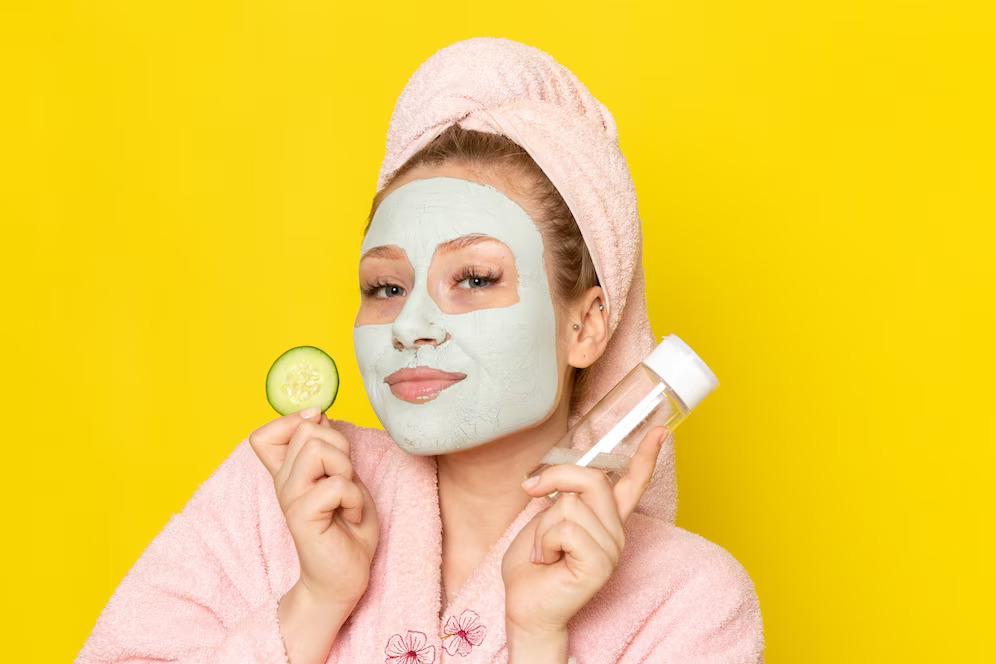Your hair is more than just strands; it’s a reflection of your overall health and well-being. But what happens when those strands start to lose their luster and vitality? Hair fall is a common concern that can be addressed with the right knowledge and care. In this article, we’ll guide you through the steps of creating a daily hair care routine that promotes hair health and minimizes hair fall.
Understanding Hair Fall
Causes of Hair Fall
Hair fall can be triggered by various factors, including genetics, hormonal changes, stress, poor nutrition, and environmental stressors. Understanding the underlying causes can help you tailor your hair care routine to address them effectively.
Normal vs. Excessive Hair Fall
Before diving into solutions, it’s important to differentiate between normal and excessive hair fall. Losing around 50 to 100 strands a day is considered normal, as new hair replaces the old. However, if you notice clumps of hair in your brush or significant thinning, it’s time to take action.
The Importance of a Daily Hair Care Routine
Consistency and Prevention
Just like your skin, your hair requires consistent care to stay healthy. A daily hair care routine not only helps prevent hair fall but also promotes overall hair strength, shine, and vitality.
Building Your Daily Hair Care Routine
Choosing the Right Shampoo and Conditioner
Start with the basics: a suitable shampoo and conditioner for your hair type. Look for products that are free of harsh chemicals and sulfates, which can strip your hair of natural oils.
Gentle Washing Techniques
While washing your hair, be gentle. Massage your scalp with your fingertips using circular motions to stimulate blood circulation and remove dirt. Avoid using your nails, as this can cause damage.
Drying Your Hair the Right Way
After washing, resist the urge to vigorously towel-dry your hair. Instead, gently squeeze out excess water and wrap your hair in a soft towel to absorb moisture.
Nutrition for Healthy Hair
Vitamins and Minerals for Hair Health
Your hair’s health starts from within. Incorporate a diet rich in vitamins like A, C, and E, as well as minerals like zinc and biotin. These nutrients play a vital role in promoting hair growth and strength.
Hydration and Omega-3 Fatty Acids
Drinking enough water is not only beneficial for your body but also for your hair. Additionally, include foods rich in omega-3 fatty acids, such as salmon, flaxseeds, and walnuts, to nourish your hair follicles.
Protecting Your Hair from Environmental Stressors
UV Protection for Hair
Just like your skin, your hair is susceptible to sun damage. Shield your locks from UV rays by wearing a hat or using hair products with UV protection.
Avoiding Excessive Heat Styling
While styling tools can give you a polished look, excessive use of heat can weaken your hair’s structure. Opt for heat-free styling methods whenever possible.
Scalp Care and Massage
Promoting Blood Circulation
A healthy scalp is the foundation for healthy hair. Regular scalp massages not only feel relaxing but also promote blood circulation, which delivers essential nutrients to your hair follicles.
Using Natural Oils for Scalp Nourishment
Natural oils like coconut oil, argan oil, and jojoba oil can provide your scalp with much-needed nourishment. Massage a small amount onto your scalp and leave it on for a few hours before washing.
Stress Management and Hair Health
The Link Between Stress and Hair Fall
Stress can take a toll on your hair health. High stress levels can disrupt your hair’s growth cycle, leading to increased hair fall.
Incorporating Relaxation Techniques
Incorporate stress-relief practices into your routine, such as meditation, deep breathing, or yoga. These techniques not only benefit your mental well-being but also contribute to healthier hair.
Avoiding Harmful Hair Practices
Tight Hairstyles and Hair Fall
Tight ponytails, braids, or buns might look stylish, but they can exert unnecessary tension on your hair follicles, leading to breakage and hair fall.
Overuse of Chemical Treatments
Chemical treatments like coloring, straightening, and perming can weaken your hair over time. Use them sparingly and opt for professional application.
Embracing Natural Remedies
Aloe Vera for Soothing Scalp
Aloe vera isn’t just for sunburns; it can also soothe an irritated scalp. Apply fresh aloe vera gel to your scalp for a cooling effect.
Onion Juice for Hair Regrowth
Studies suggest that onion juice might help stimulate hair regrowth. Apply onion juice to your scalp and leave it on for 15-30 minutes before washing.
Finding the Right Hairbrush
Choosing the Appropriate Brush for Your Hair Type
The right hairbrush can make a significant difference. Choose a brush that suits your hair type—whether it’s straight, curly, or textured—to minimize breakage.
Consulting a Professional
When to Seek Professional Advice
If your hair fall persists despite your efforts or if you notice sudden changes, it’s advisable to consult a dermatologist or a trichologist. They can diagnose underlying issues and recommend appropriate treatments.
Final Thoughts
Your hair is an integral part of your identity, and caring for it should be a priority. By implementing a daily hair care routine that encompasses gentle washing, proper nutrition, stress management, and protective measures, you’re taking proactive steps to maintain healthy hair and reduce hair fall. Remember, consistency is key, and the effort you invest in your hair care routine today will pay off in the form of luscious, vibrant locks tomorrow.
Disclaimer: The information provided in this article is for informational purposes only and should not be considered as medical advice. Consult a healthcare professional for personalized guidance regarding your hair health.

David M is a seasoned author renowned for his expertise in health tips and homemade remedies. With a passion for wellness, he diligently researches and meticulously analyzes a plethora of online resources, ensuring their credibility. David’s dedication shines through as he curates invaluable information, catering to health enthusiasts.










